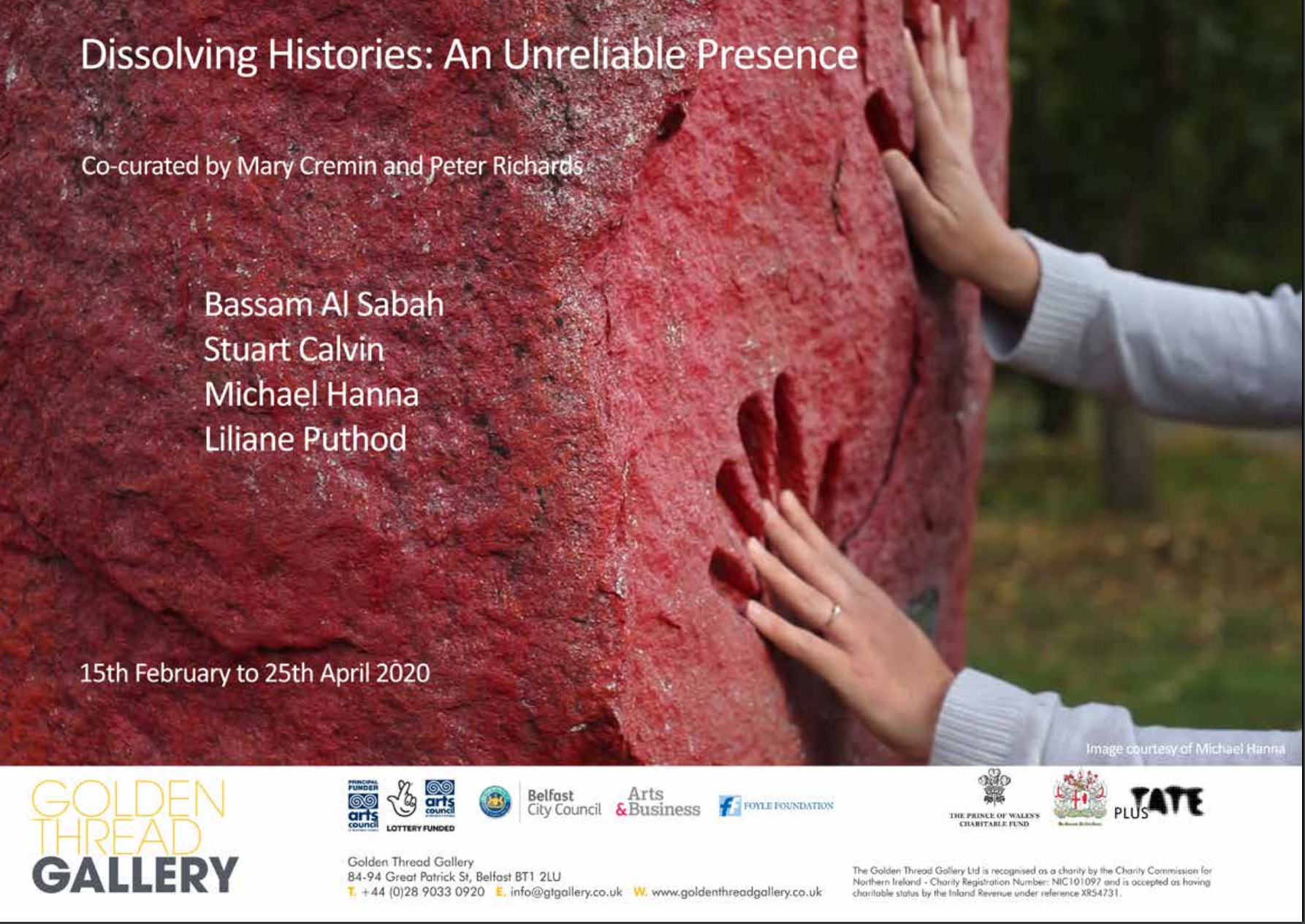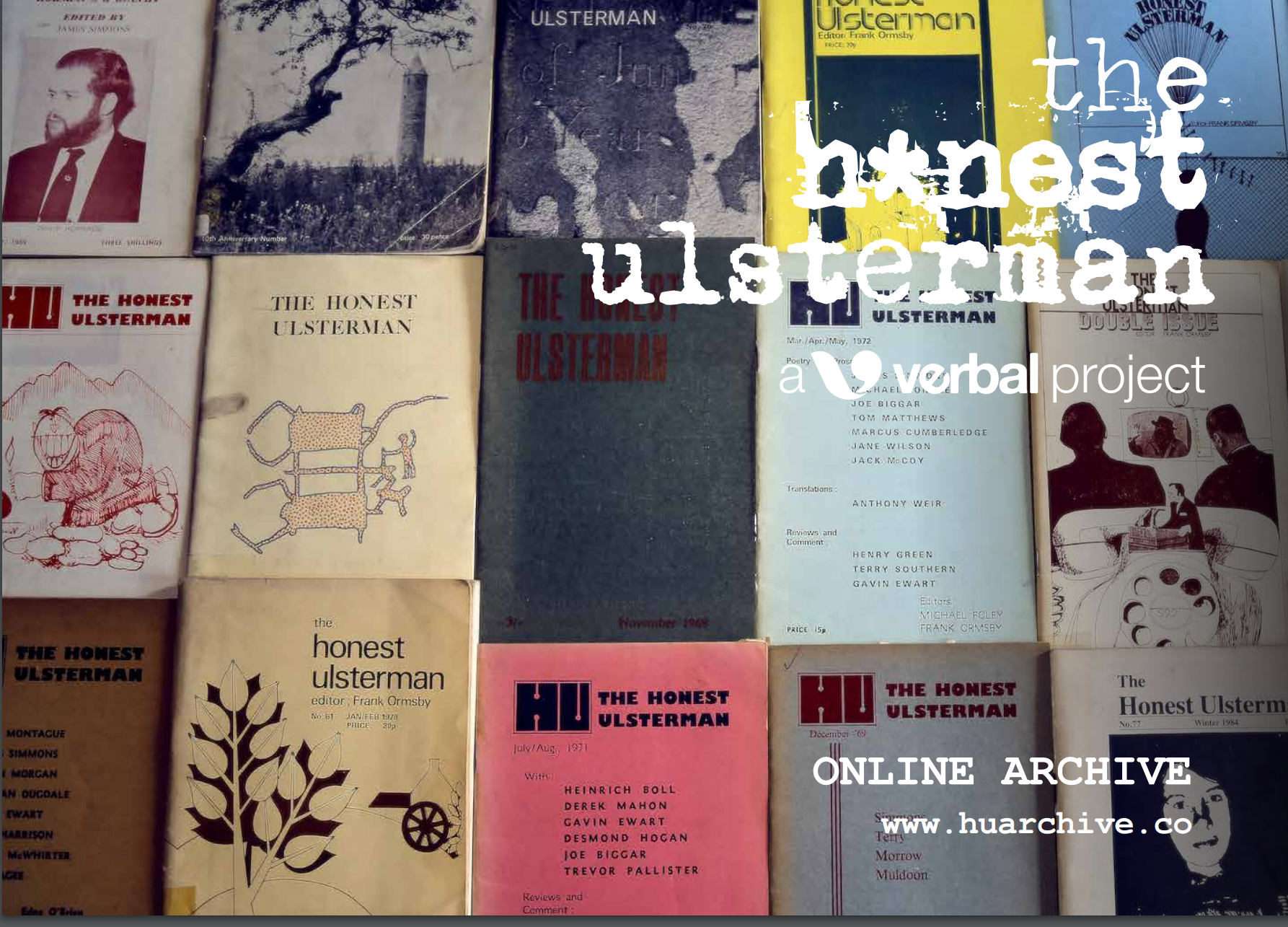Sing this Migration
Hello again. We’ve had to move Abridged online. Because of a pandemic. Possibly the most Abridged reason ever. It’s been an interesting process. On the upside we can now publish much longer poems and present to you good people videos and even the occasional soundtrack. On the other hand, we’ve lost the slightly erotic feel and smell of a hot of the presses print edition. (Don’t look at us like that.)
So, you’re probably wondering where the contents list is. There isn’t any. Think of this incarnation of Abridged as a forest within which you can lose and perhaps even find yourself. We’ve tried to keep the mystique of the printed version which is difficult as mystique isn’t exactly part of an online environment that prescribes restraint. At any rate we hope you enjoy this newly formatted but still very much classic Abridged.
Thanks go to the Arts Council of Northern Ireland without whom Eris would not have been possible and for their support in this difficult period. And of course, to Verbal whose support has been very valuable and greatly appreciated. We’re also grateful to all our supporters in the Arts World, particularly the Golden Thread Gallery and RUA RED. Last but not least thanks to our readership, both those with us from the beginning and to those the may have just discovered us. We couldn’t do this without you.
To read the poems on computers/laptops is self evident. On tablets and phone you can read on full screen and scroll upwards.
0 – 19
Eris is the goddess of discord, strife and the chaos that unravels from them. Because of this, she is not invited to a wedding (that of Peleus and Thetis, future parents of Achilles). Because of this, she begins her rippling revenge by planting the seed of the Trojan War. It is the greatest discord, that which defines her. She displaces her jealousy into a golden apple, addressed ‘to the fairest one’. She rolls the fruit into the party of peers like a hand grenade. Jealousy explodes among them, spreading and embedding its sticky splattered seeds. There is a skirmish between the greatest goddesses, Hera, Athena and Aphrodite, less for the golden apple than for the superlative it awards. Mortal Paris is appointed judge and there unfolds a game of bribery and desire, glowing prospects rolled under his nose. Desire wins in the form of Aphrodite’s promise of Helen, the most beautiful (the fairest) woman in the world. Jealous love takes the apple. Paris takes Helen. The war of wars rages for a decade, its echo through ages endless, Achilles one tragedy among countless others that blur into a swelling, edgeless blackening sky.
Eris’s is another story that tells, vaguely, of the danger of fruit and how we want it. Eve’s apple, Persephone’s pomegranate. Fruit is so often bait planted by one who troubles an apparent paradise, a pregnant fragment of another world, another way of being thrust into new ground. Mythologically, fruits are pivots in the history of the human condition, growing change from the hunger, the desire, they instil. Fruit must rot, the seed buried and broken open, for the new to grow, for us to be nourished by change. And again and again.
Eris’s golden apple was the colour of sunset and plump to bursting with sunset’s changefulness, its deception, its heat, desire, fear, romance and catastrophe. Ripened at the edge of what we understand, touched by the decadence of night (something like her namesake dwarf-planet, orbiting at the edge of our solar system, and at the edge of easy classification, where things start to come apart, lines blurring).
Eris is something of a trickster god. That is, her power doesn’t beam from innate and endless divine strength, but generates from the exercise of manipulation, like heat. She swells with it. There is something vampiric about her mechanism, about how, daughter of Nyx, she congeals from pure darkness, beginning weak and small, architecting a parasitic bond with the beings whose strife provides her divine identity. She warms herself by the flame of friction, harvests her power from bloodshed, eats the detris of conflict. She represents an understanding that our own fears and desires are the greatest weapon that might be wielded against us, and, by extension, against those who are like us.
Born of night, Eris is the mother of forgetting and its anarchy. Lethe, Dysnomia. Discord, from ‘cor,’ heart. Discord prevents the heart from hearing its echo, its correspondence, within the bodies of other people. Its dissolution is manifested in a difficulty sensing ourselves beating in the lives of others. Forgetfulness is a shifting toward chaos, a returning, a breaking-apart, a loss of patterns, distinctions. It is human to forget. Indeed our fears and desires are rooted in oblivion, in our knowledge of the fact that we forget and are forgotten. And similarly, they bear the further fruit of forgetfulness. It is a cycle.
An idea of chaos is that, from within the flux of a situation, causes can be effectively impossible to pinpoint. We must get outside of things to see patterns. Chaos is never one step on a path, but always a returning. We are haunted by chaos and how it would empty our world of what we have built, what we know about ourselves. Eris is sometimes described as the goddess of chaos. Curious, then, that she should be identified as the first cause of the war of wars.
Discord is not the same as chaos, the apparent loss of the thread of causes, wherein relations have dissolved. Discord rather may be the first pull of an unspinning toward chaos, still full of friction and relations. It is entirely to do with relations. Discord (chord) finds its echo in musical dissonance, notes sounded together whose simultaneity produces not a mutual reinforcement, a cord-like unity, but a disjunction, a jarring bouncing-back from one another, a damaging anxiety. But while Discord is destructive, the chaos it moves toward, forward and backward at once, is the site of new beginnings.
Eris started it, the story goes. The war of wars began in the kindled jealousy of one. Eris’s role as the root of it all is a pin drop, a beat of moth wings. Easily overlooked, or easily scapegoated, the duplicitous case with so many so-identified sparks of conflict, so many causes. In the midst of strife, we play the blame game, a dizzy tangle of forgetting and fixating. We look for cause as though meaning is contained within it, like ripened flesh, a holy grail. So often that one cause would lose its golden glow, as we get closer and come to see clearly it may be just another deflection, with hidden roots elsewhere, the echo of another origin, fractal, spectral, emptied.
In the history of the human imagination, personification has provided some relief from this endless seeking, some sort of resting place. The blame for western history’s greatest conflict is crumb-trailed back to the goddess of strife, Eris, the personification of Discord itself. But Eris can exist in collective imagination as the source of human strife only because she is clotted from the strife that slips among us, in the black matter of our own minds.
The deity, the personification, is pushed away like a looking glass so we might view ourselves with some play at distance, from the ‘outside’. And so we look for the meaning down the endless churn of a hall of mirrors. With myth, to talk of cause, of beginnings, is little to do with the logic of linear trails. The cause is the effect, the effect is the cause, and beginning and end are one and the same: rich, sticky, squirming chaos, the eternal backdrop of emergence.
Our Friends
































